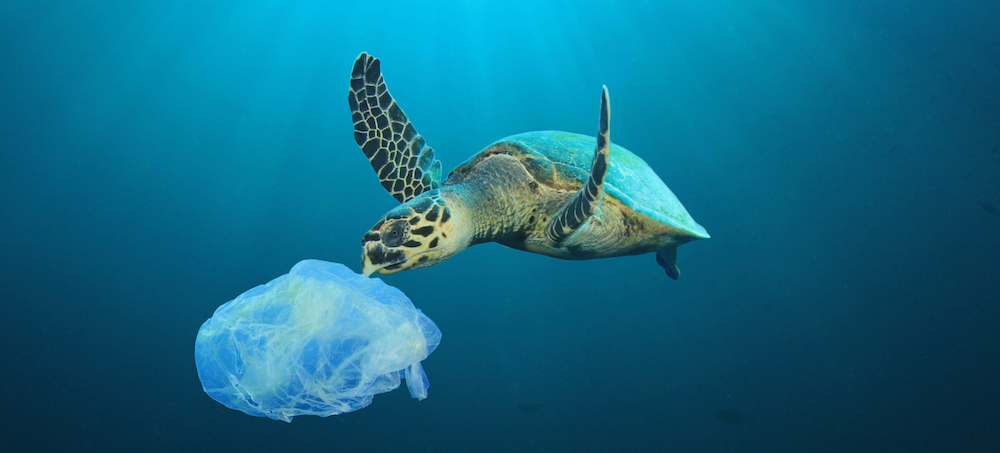US Is World's Biggest Producer of Plastic Waste, Report Finds
Cristen Hemingway Jaynes EcoWatch A sea turtle swims near a plastic bag. (photo: Rich Carey/Shutterstock)
04 December 21
A sea turtle swims near a plastic bag. (photo: Rich Carey/Shutterstock)
04 December 21
The first recommendation of the committee of academic experts who wrote the report is that the U.S. stop producing so much plastic, especially non-reusable materials or plastics that are not “practically recyclable,” Inside Climate News reported. The report also proposed a national cap on the production of virgin plastics.
“The developing plastic waste crisis has been building for decades,” the study said, as reported by The Washington Post. “The success of the 20th century miracle invention of plastics has also produced a global scale deluge of plastic waste seemingly everywhere we look.”
“[T]he committee was able to conclude that while only 4.3 percent of the world’s population lives in the United States, the nation was the top generator of plastic waste, producing 42 million metric tons in 2016, with per person plastic waste generation at 287 pounds,” reported James Bruggers of Inside Climate News.
“The fundamental problem here is that plastics are accumulating in the natural environment, including in the ocean,” said Margaret Spring, Monterey Bay Aquarium’s chief conservation officer and chair of the report committee, said in a telephone interview, Inside Climate News reported. Plastics are “pervasive and persistent environmental contaminants,” Spring said, and the problem is “going to continue unless we change — we have to change. And that’s just the truth.”
“A lot of U.S. focus to date has been on the cleaning it up part. There needs to be more attention to the creation of plastic,” Spring said, as reported by The Washington Post.
“We suggest that one way to reduce plastic waste would be to make less plastic,” oceanographer and report co-author Kara Lavender Law said, as reported by The Associated Press. “Recycling cannot manage the vast majority of the plastic waste that we generate.”
“The panel provided a menu of potential ways to fix the plastics problem, starting with ‘national goals and strategies to cap or reduce virgin plastic production,” as Seth Borenstein of the Associated Press reported.
“Virgin plastic is plastic that starts from feedstock that hasn’t been used — namely, non-recycled material. The problem, the report said, is that ‘virgin plastic prices are artificially low due to fossil fuel subsidies, therefore virgin plastics are more profitable to produce’ — and U.S. manufacturing of them continues to increase,” Borenstein reported.
In Congress’ recently passed $1.2 trillion infrastructure bill, there was division concerning plastics reform, with industry-friendly lawmakers supporting “advanced recycling,” as Inside Climate News reported.
“Environmental advocates find the industry’s touting of ‘advanced recycling’ a form of greenwashing — making an official stance seem more environmentally friendly than it actually is — and say it is continuing the nation’s reliance on fossil fuels,” reported James Bruggers of Inside Climate News.
“When you reduce plastics production, there are less air toxins and greenhouse gases,” which are often a problem in or near low income communities or communities of color, said former Environmental Protection Agency regional administrator and president of environmental group Beyond Plastic, Judith Enck, as reported by Inside Climate News. Enck added that low recycling rates add to landfills and incinerators and that these are likely to be located in these communities.



